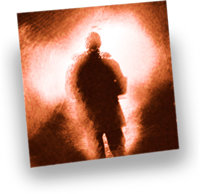Ecstasy was originally developed by Merck pharmaceutical company in 1912. In its original form, it was known as “MDMA.” It was used in 1953 by the US Army in psychological warfare tests, and then resurfaced in the 1960s as a psychotherapy medication to “lower inhibitions.”1 It wasn’t until the 1970s that MDMA started being used as a party drug.
By the early 1980s, MDMA was being promoted as “the hottest thing in the continuing search for happiness through chemistry,” and the “in drug” for many weekend parties. Still legal in 1984, MDMA was being sold under the brand name “Ecstasy,” but by 1985, the drug had been banned due to safety concerns.
Since the late 1980s, Ecstasy has become an embracive “marketing” term for drug dealers selling “Ecstasy-type” drugs that may, in fact, contain very little or no MDMA at all. And while MDMA itself can produce harmful effects, what is called Ecstasy today can contain a wide mixture of substances—from LSD, cocaine, heroin, amphetamine and methamphetamine, to rat poison, caffeine, dog deworming substances, etc. Despite the cute logos dealers put on the pills, this is what makes Ecstasy particularly dangerous; a user never really knows what he is taking. The dangers are increased when users increase the dose seeking a previous high, not knowing they may be taking an entirely different combination of drugs.
Ecstasy most commonly comes in pill form but can also be injected and taken in other ways. Liquid Ecstasy is actually GHB, a nervous system depressant—a substance that can also be found in drain cleaner, floor stripper and degreasing solvents.












